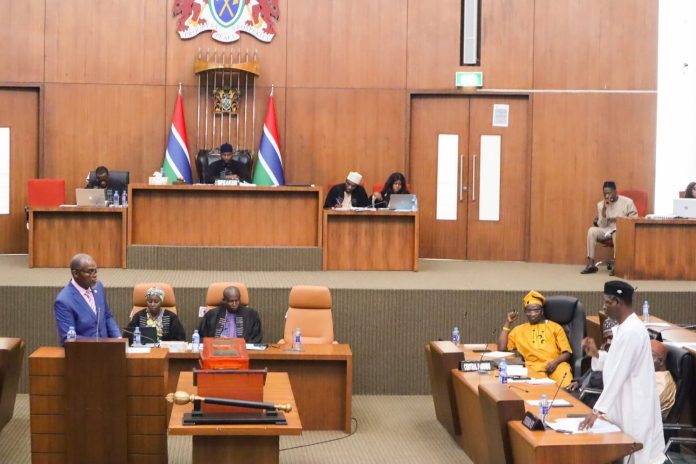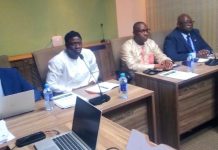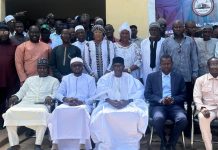By Kebba AF Touray
Vice President Muhammed B.S. Jallow on Wednesday appeared before members of the National Assembly, fielding wide-ranging questions on the issuance of diplomatic passports, national disaster preparedness, and the current use of vehicles procured for the Organisation of Islamic Cooperation (OIC) summit.
The question-and-answer session, held on July 9, 2025, provided lawmakers with an opportunity to press the Vice President on key national issues during a scheduled parliamentary sitting.
Diplomatic Passports Under Scrutiny
Banjul North lawmaker Hon. Muhammed Lamin B. Bah, standing in for Banjul South, asked the Vice President to provide a list of all individuals who have been issued diplomatic passports and the reasons for issuing each document.
In response, Vice President Jallow explained that diplomatic passports are issued based on established guidelines and subject to presidential approval. He noted that positions such as the Vice President, members of the National Assembly, and Permanent Secretaries automatically qualify for diplomatic passports.
“For anyone else requesting a diplomatic passport, the request is routed through the Ministry of Foreign Affairs, which advises the President on whether or not to approve the issuance,” he said.
When asked in a supplementary question by Bakau lawmaker Hon. Assan Touray about the criteria used to determine eligibility, the Vice President reiterated the existence of official guidelines and the advisory role of the Foreign Affairs Ministry in non-standard cases.
In a related follow-up, Badibu Central representative Hon. Sulayman Saho questioned whether those same guidelines applied to non-Gambians. Vice President Jallow replied that honorary consuls, some of whom are not Gambian nationals, are entitled to diplomatic passports due to the nature of their positions.
Pressed further by Serrekunda West MP Hon. Madi Ceesay on whether the Vice President could provide the full list of diplomatic passport holders from 2017 to date, Jallow deferred, directing lawmakers to the Gambia Immigration Department. “A number of diplomatic passports have already been cancelled over the years, and the Immigration Department is the appropriate authority to provide the updated and accurate list,” he said.
OIC Vehicles and Secretariat Audit
On another front, Hon. Bah asked about the status of vehicles procured for the OIC Summit. Vice President Jallow confirmed that the vehicles are in good condition and are now being used by various government ministries for official purposes.
Hon. Omar Jammeh for Janjanbureh raised concerns over the administrative cost of running the OIC Secretariat and the revenue management of the Sir Dawda Kairaba Jawara Conference Center. The Vice President responded that an audit covering the period from 2018 to December 2024 is currently underway.
“Because the audit is still ongoing, it would be premature to provide figures now,” Jallow said. “Once the audit report is finalized, all relevant details will be made available.”
Disaster Response Measures Ahead of Rainy Season
With the rainy season approaching, lawmakers sought updates on the government’s disaster preparedness strategies. Hon. Bah asked the Vice President to elaborate on the emergency response measures coordinated by the National Disaster Management Agency (NDMA).
Jallow responded that drain clearing and cleanup activities are actively underway in disaster-prone areas, with specific interventions around the Kotu stream under the West Africa Coastal Areas (WACA) project.
He also shared that he conducted a tour of known disaster zones on June 12, 2025, to assess readiness and instructed agencies to ensure coordination for timely interventions.
“The government and its development partners do have emergency funds in place to assist affected families,” he added.
However, Hon. Bah further questioned how effectively the disaster funds have been used to support victims in the past. Vice President Jallow explained that these emergency funds can only be accessed once a national emergency has been officially declared.
“If a national emergency is not declared, then those funds remain inaccessible,” he said.



















